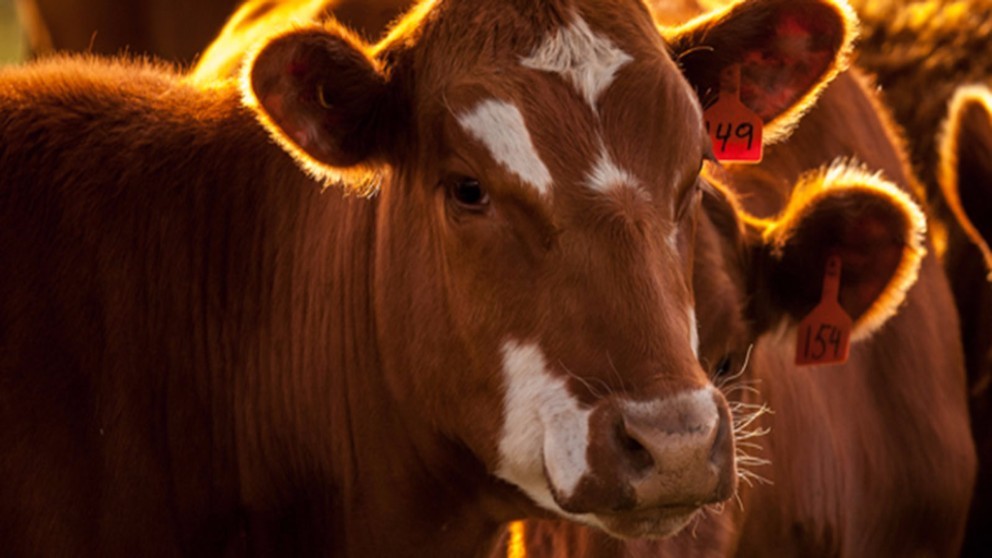Push To Slap Sin Tax on Meat is Misguided

The idea of having to pay a sin tax for environmentally detrimental foods seems to be gaining more support. For some, eating meat is considered a sin, and therefore meat products should be taxed, like alcohol and tobacco
by Sylvain Charlebois for The Chronicle Herald
A new report published recently by a group called Farm Animal Investment Risk & Return Initiative (FAIRR) argues that a tax on meat is inevitable.
The meat industry, particularly cattle, has been facing relentless criticism over the last decade. Very rarely have we seen reports encouraging consumers to eat more meat. For one thing, science-based findings connecting climate change and meat have been accumulating. The well-known United Nations Food and Agriculture Organization has reported that livestock account for about 14.5 per cent of the world’s greenhouse gas emissions. Other surveys have even suggested up to 18 per cent. Greenhouse gas emissions produced by the cattle industry will only increase, as the middle class in both India and China are expanding and, as such, demand for animal protein is exploding.
And then there’s health. Two years ago, the World Health Organization linked meat consumption to cancer. The report demonstrated that eating processed meat products increases the risk of developing cancer. Several meat-producing countries including Canada, the U.S. and Brazil ridiculed the report, as processed meats were added to the same category as asbestos. But several other governments, including China’s and some European countries,’ have actively discouraged their populations from consuming an unreasonable amount of meat. Not a signal the meat industry needs.
“The trading partnership between Canada and the U.S. is one that delivers high-quality foods and supports millions of middle-class jobs on both sides of the border”
The other major headwind the industry faces is related to the ethical treatment of animals. A number of people believe livestock production to be unethical and that the industrial production of meat should be outlawed, period. The ethics narrative around meat has been gaining traction over the last decade or so.Now, if you think the FAIRR initiative is some minor, under-resourced group desperately trying to seek attention, think again. It includes a portfolio of 57 investors with more than $2.3 trillion under management. This alliance clearly wants to influence the plant-based protein agenda and has had its fair share of success in doing so. Already, agri-food giants like Tyson Foods and Cargill are looking at “beyond-meat” solutions. Demand-focused companies are seeing the writing on the wall. Many consumers are re-evaluating their relationship with animal proteins. But in cattle country, a large number remain in deep denial, blaming interest groups for fear-mongering.
Statistics show that demand for meat in Canada is still stubbornly robust. The average Canadian would typically consume about 87 kilos of meat products in one year, which is just slightly lower than the amount from five years ago. This year, beef consumption in our country reached 25.4 kilograms per capita and some expect demand for the product to increase to 25.5 kilograms next year. Surprising, perhaps, but beef prices have come down, making the product more attractive for the consumer on a budget.
Some significant variations among provinces should be noted, though. Alberta is by far the largest consumer of beef, as the average adult Albertan male will eat 83 grams a day. That’s 53 per cent more than the average in Newfoundland and Labrador, and 18 per cent more than in neighbouring British Columbia. Affordability and lifestyle are probable reasons for such a difference.
Canadian consumers have stayed on the side of our livestock industry but numbers are showing signs of a change in consumer habits. Demand for pork is expected to fall to unprecedented levels in 2018, dropping 13 per cent from its 2015 level. Demand for chicken, one of the cheapest types of animal protein out there, plateaued in 2016 and has since softened. Although beef could experience a rebound in 2018, expected increases aren’t spectacular, given how low retail prices are these days. Canadians are not giving up on meats but they are willing to spend more time away from the meat counter. Animal protein still has market currency but plant-based alternatives to meat are increasingly impressive.
But little can be accomplished by taxing meat. Taxing food in general, any food product, is morally questionable. A retail tax on food is regressive and could penalize the underprivileged. Some have argued that meat is the new tobacco. This sensationalism-intended parallel is unwise, since tobacco is not essential to life and food is.
The implementation of such a tax would also be challenging. If federal or provincial governments were to tax meat, funds would likely be used to support other relevant public programs. But as with any tax, transparency on how funds are dispersed within the massive, bureaucratic governmental machinery is weak. Also, many great small businesses around the country have offered high-quality meat products to local markets. Many of them are family businesses. Taxing sausages and steaks would compromise the viability of many stores valued by communities around the country.
Meat has played a significant part in consumers’ lives in the Western world for centuries. Penalizing consumers for continuing a culinary tradition is inexplicable. Taxing a food product which has been entrenched in our culture for so long is idealistically silly. We should let the market evolve and allow consumers to make their own choices. That said, the livestock industry ought to look at market data and start listening to consumers in order to better appreciate their concerns. Given that they are one of the most trusted groups in our economy, livestock producers are ideally positioned to renew their social contract with the public.
Sylvain Charlebois is professor in food distribution and policy and dean of the faculty of management, Dalhousie University.












